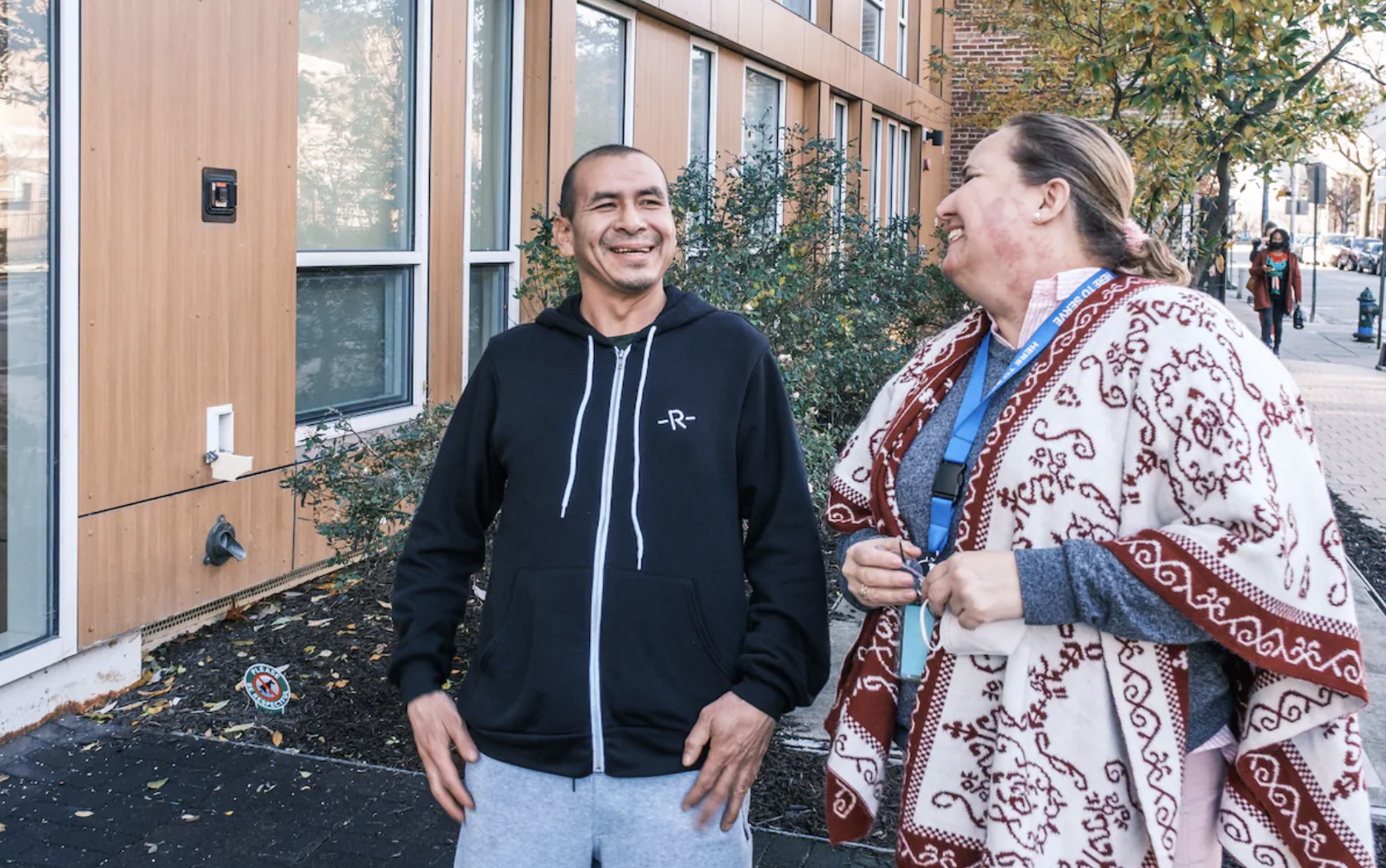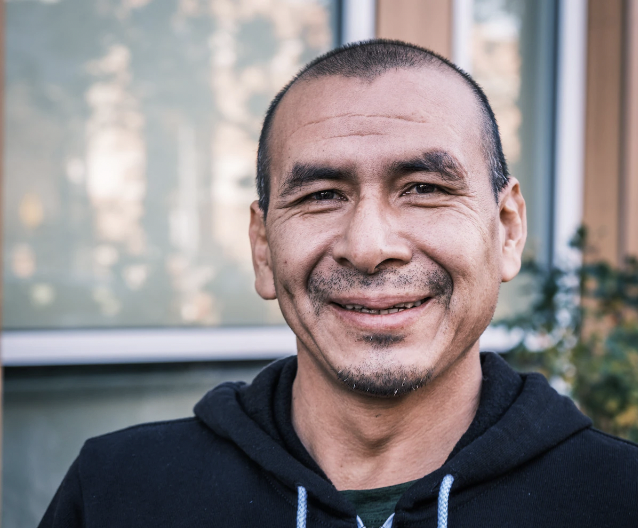Chronically homeless men have found a home at La Casa in the District
Perspective by John Kelly
Columnist
December 28, 2022 at 2:00 p.m. EST
 Salvador, a resident in La Casa, laughs with Alicia La Rotta, his bilingual case manager. The Columbia Heights building for chronically homeless men is operated by Friendship Place. (John Kelly/The Washington Post)
Salvador, a resident in La Casa, laughs with Alicia La Rotta, his bilingual case manager. The Columbia Heights building for chronically homeless men is operated by Friendship Place. (John Kelly/The Washington Post)
Salvador waited patiently as my question was interpreted in Spanish: Why did you decide after more than a decade living on the streets of Washington to move into La Casa?
“Because it is too dangerous on the streets,” he said in Spanish. “And so cold.”
Fast, informative and written just for locals. Get The 7 DMV newsletter in your inbox every weekday morning.
Too dangerous. So cold. That’s the reality for many unhoused people in Washington. For some, there is La Casa.
The seven-story apartment building is in Columbia Heights. It’s operated by Friendship Place, a nonprofit organization working to end homelessness in the District and a partner in The Washington Post Helping Hand.
“What’s heartwarming for me is that the participants who come here, they have a home,” said Friendship Place’s Joyce Washington, the division director of the permanent supportive housing program at La Casa. “We consider ourselves a family. We know our participants. Some have been here since we opened.”
That was in December 2014, when then-Mayor Vincent C. Gray (D) was among city officials who cut the ribbon dedicating the 40-unit building at 15th and Irving streets NW. Before construction began on La Casa, there had been an almost Dickensian situation on that block. Sitting on a vacant lot was a set of trailers. Inside each were rows and rows of bunk beds. Men experiencing homelessness could stay there for the night.
No one liked the arrangement very much. Not the men who sought refuge there. Not the social workers who tried to help. Not the community, which saw it as an eyesore. The trailers were removed. And with funding from the District’s Department of Human Services, La Casa — “the house” in English — rose in their place.
It’s a handsome edifice: glassy, with a faux-wood exterior and a double-height lobby. It looks like a high-end condo building. Not long after its dedication, Washington City Paper called La Casa “the best building that’s gone up in the District in recent months.”
La Casa offers permanent supportive housing, the most complete expression of what’s known as the “housing first” model. There was a time when people who had become homeless through addiction or mental illness had to solve those problems — or start trying to — before they were allowed to enter a housing program. Housing first recognizes that it’s easier to face those challenges with a roof over your head.
La Casa is for chronically homeless men, those who have had the most intractable problems finding stability. These are men like Salvador, who asked that I not use his last name. He came to Washington from Mexico 18 years ago when he was 22, leaving behind a wife and daughter. His plan, he said, was to send money home to his family.

Before moving into La Casa two years ago, Salvador had lived on the streets of Washington for 12 years. (John Kelly/The Washington Post)
But Salvador wound up homeless. He lived in parks around Washington for 12 years before connecting with Friendship Place two years ago and learning about La Casa. Like the other residents of La Casa, Salvador has a 300-square-foot studio apartment. His is neat and sparsely decorated with a painting of the Mexican flag and a 1950s console radio that he found on a sidewalk and coaxed back to life.
Each La Casa resident has a case manager to help him. In Salvador’s case, that’s Alicia La Rotta, La Casa’s bilingual case manager (and my interpreter). They meet weekly, working on a plan to continue the positive arc Salvador has been on since moving in.
All La Casa’s residents are required to put 30 percent of their income — whether that’s from benefits or from a job — into escrow. It enables each to create a savings account. Salvador works part time as a dishwasher and prep cook in a restaurant. He also repairs bikes in the neighborhood. He sends whatever money he makes back to his family.
“That motivates him to keep going,” La Rotta said.
Salvador said that during his time on the streets, he lost all of his Mexican identity documents. Getting new copies is one of the tasks La Rotta is working on with him.
“If she has to go the consulate, she will go to the consulate,” Washington said. “It will take some time, but I know that she will work with Salvador.”
Salvador said that is his goal: to get his documents and return home.
For others, La Casa will always be their home.
“We do have men that require a higher level of care,” Washington said. For them, she said, “the goal is aging in place,” with home health aides checking on them.
Some residents, she said, have died at La Casa in the nine years since it opened. That is sad, of course, but it’s also heartwarming. Rather than dying alone on the streets, they passed away in the company of their La Casa family.
Helping Hand
You can help Friendship Place by making a donation through The Washington Post Helping Hand. And if you’re hoping to take a tax deduction for this year, now is the time to give.
To give online by credit card, visit posthelpinghand.com. To donate by mail, send a check to Friendship Place, 3655 Calvert St. NW, Washington, DC 20007.






